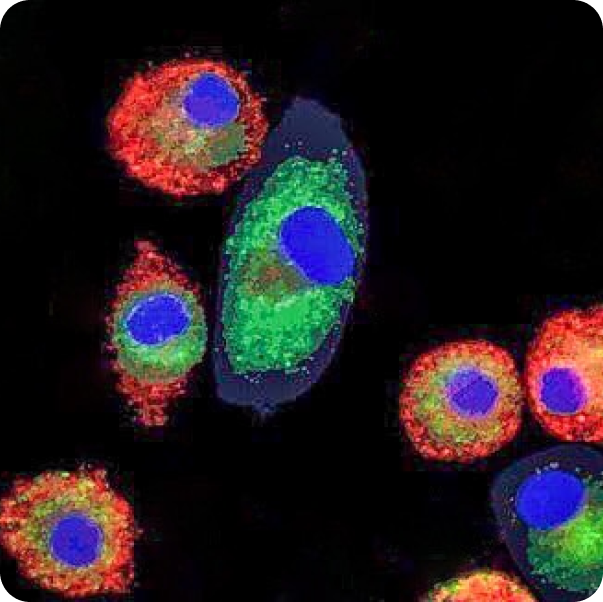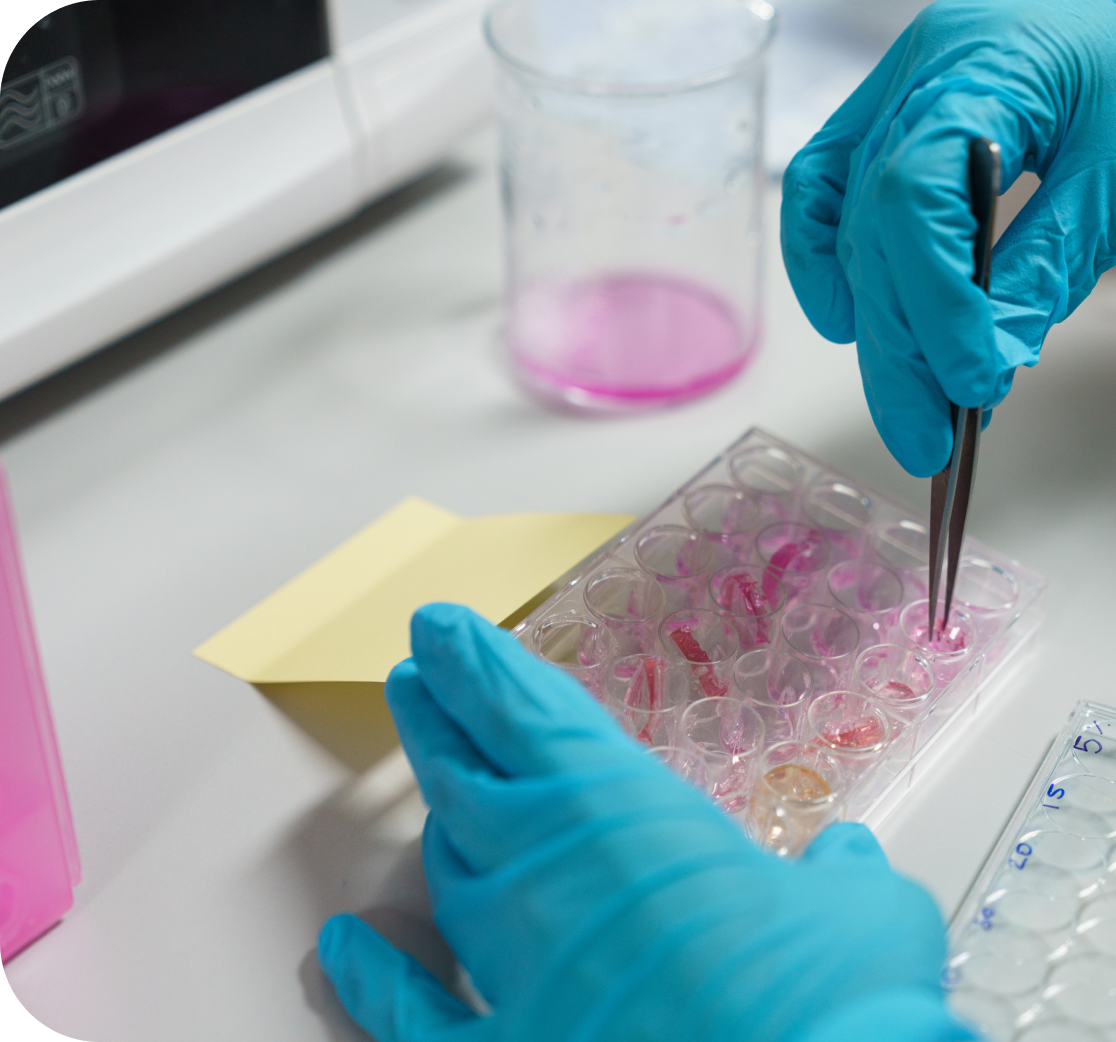
ImmuBYTES: a series of short webinars
Welcome to ImmuBYTES, a new series designed to deliver bite-sized insights into cutting-edge tools in cell-based research and toxicology to drive innovation and discovery.
In vitro specialists for
immune responses in the lung

Standard portfolio
Our contract research services with leading experts provide a tailored experimental design to directly address your in vitro inhalation assessment needs.
Advanced multi-metric assessments
We use state-of-the-art high content imaging techniques to combine multiple endpoints for immune cells which support mechanistic understanding and can directly translate to clinical studies.
Novel immune-competent products
Our patented products ImmuPHAGE™ and ImmuLUNG™ provide a detailed understanding of the immune response in the lungs to inhaled chemicals and products.
Along with the air we inhale, each breath also contains a cocktail of chemicals and particles from our environment. The immune system in the lungs interacts with these chemicals and determines the body’s response to them. Despite respiratory immunology being a key aspect of inhaled product safety, in vitro models and assays to mimic these responses was an unmet need and animal experiments have traditionally been heavily relied upon to provide this information.
Since 2013, researchers at ImmuONE have been working to provides a solution to this problem.
We are experts in the lung’s immune system – in particular, the alveolar macrophages which are the first to respond when a chemical enters the respiratory system. Our services, products and experts enable you to understand, in detail how alveolar macrophages respond to inhaled chemicals/particulates and support classification of the response as being adaptive or adverse.

Our services, products and experts enable you to understand, in detail, how alveolar macrophages respond to inhaled chemicals/particulates and support classification of the response as being adaptive or adverse.
Our unique in vitro models and multi-endpoint assessments deliver results spanning morphology, function and biochemistry to provide companies with clarity on the human health impact of their products. We provide a cost-effective, multi-endpoint alternative which is more human-relevant and reduces animal testing, exploring various interpretations of a read-out.
We carry out a wide variety of in vitro services in-house, with a specialisation in alveolar high content imaging assays. Our morph_ONE™ assay combines detailed cell morphology with cell health and biochemical readouts to help classify the mechanism of ‘foamy’, highly vacuolated macrophages to support safety assessment. Our two novel products – ImmuPHAGE™ and ImmuLUNG™ – provide in-depth analysis of macrophage responses in the lungs and epithelial tissue of the alveoli.
Understanding the inflammatory response of the airways to inhaled substances is paramount to assessing the long-term adverse effects on lung health. Many inhaled substances reach the small or distal airways, and it is in this region of the lung where alveolar macrophages are the first responders to these substances and play a pivotal role in homeostasis and regulating inflammation. Therefore, to ensure a comprehensive safety of inhaled products, it’s imperative to employ immune-competent models that capture the nuanced responses of alveolar macrophages.
At ImmuONE, we specialise in alveolar macrophage models and responses. Our services, products and experts enable you to understand, in detail how alveolar macrophages respond to inhaled chemicals/particulates and support classification of the response as being adaptive or adverse.



Welcome to ImmuBYTES, a new series designed to deliver bite-sized insights into cutting-edge tools in cell-based research and toxicology to drive innovation and discovery.

In our recent ImmuBYTES webinar, we delved into the fascinating world of Cell Painting, a high-content imaging assay (HCIA) that transforms cellular morphology into a rich source of data.

Gender equality in the biotech industry has come a long way in recent years. In the UK, the US and Europe, women now make up between 40-50% of the biotech workforce, which is a higher percentage than in other STEM fields, such as engineering and the physical sciences.
Make Every Breath Safe
Sycamore House
16 Leyden Road
Stevenage, Hertfordshire, UK
SG1 2BP
Copyright 2025 ImmuONE.
All rights reserved.